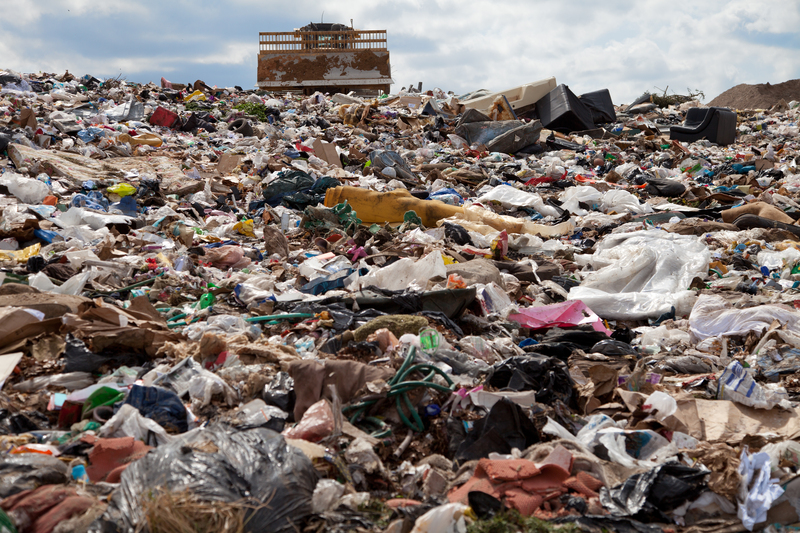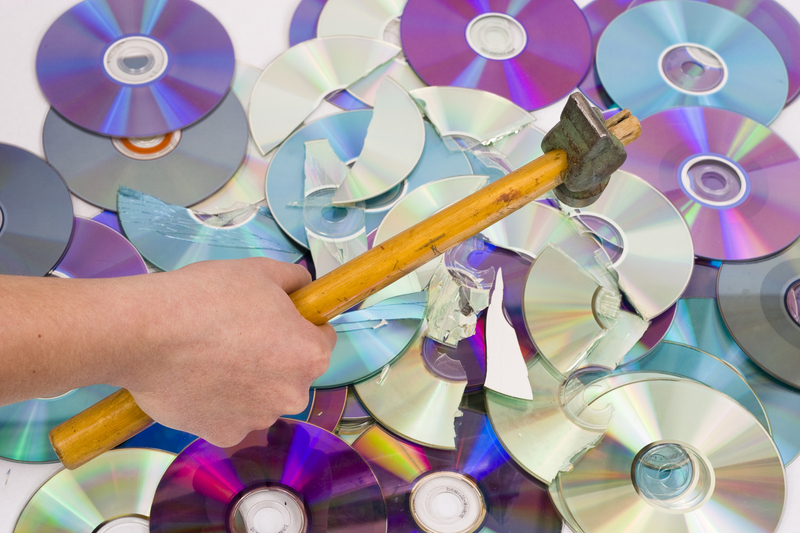Guide to Environmentally Friendly Pot and Pan Recycling
In our eco-conscious society, finding sustainable solutions for household items is more important than ever. One often-overlooked category is cookware waste. This comprehensive guide reveals all you need to know about environmentally friendly pot and pan recycling -- brightening your sustainability journey while helping you minimize landfill waste and reduce environmental impact. Whether your old frying pans have lost their nonstick coating, or your dented saucepans no longer suit your kitchen, read on to discover eco-friendly cookware disposal methods and recycling solutions.

Why Practice Environmentally Friendly Pot and Pan Recycling?
Every year, millions of pots and pans are discarded worldwide, with many ending up in landfills where they can take centuries to break down. Common materials such as stainless steel, aluminium, copper, and even some non-stick coatings can have a lasting negative impact on the environment if not disposed of responsibly.
- Reduces landfill waste
- Conserves valuable resources
- Promotes a circular economy
- Lessens your carbon footprint
Eco-friendly cookware recycling ensures that valuable metals and materials are reused, significantly benefiting both the planet and future generations.
Understanding the Materials in Your Cookware
Before recycling pots and pans, it's important to determine what they are made of. Here's a breakdown of typical cookware materials:
- Stainless Steel: Durable, 100% recyclable, popular for its resistance to rust and staining.
- Aluminum: Lightweight, easily recyclable, and widely used in both cheap and high-end cookware.
- Copper: Excellent heat conductor, often recycled due to its high residual value.
- Cast Iron: Recyclable but requires specialized facilities due to weight and density.
- Non-Stick Coatings (such as Teflon): Must be removed or professionally processed before recycling due to potential toxins.
- Ceramic/Enamel Coatings: Not all recycling centers accept them, but some facilities do process coated metals.
Eco-friendly pot and pan recycling depends heavily on recognizing these materials and matching them with the right recycling stream for maximum environmental benefit.
How to Prepare Pots and Pans for Recycling
A crucial step in recycling old cookware is proper preparation. Follow these steps to optimize the recycling process:
1. Clean and Remove Contaminants
- Wash your pots and pans thoroughly to remove grease, food particles, and debris.
- *Note:* Some recycling centers only accept clean metals.
2. Separate Materials
- If possible, remove non-metal parts such as plastic handles or glass lids. These are often recycled through separate streams.
- Sort different metal types for easier processing (for example, aluminum from steel).
- If unsure, ask your local recycling center about their requirements.
3. Assess Non-Stick and Coated Cookware
- Many standard facilities do not accept cookware with non-stick or ceramic coatings.
- Contact specialty scrap metal recyclers who can safely process and extract metals.
Can You Place Pots and Pans in Your Curbside Recycling?
Not all curbside recycling programs accept pots and pans, especially those with coatings or non-standard metals. Here's what you need to know:
- Check local guidelines: Consult your municipal waste and recycling authority's website or hotline.
- Some areas accept uncoated metals but require them to be dropped off at a designated center.
- Coated, non-stick, and cookware containing multiple materials often require speciality recycling.
Pro tip: Search online for household hazardous waste collection events -- these are sometimes equipped to handle challenging items safely.
Specialty Metal Recycling Centers
When standard curbside collection can't accommodate your old cookware, scrap metal recycling centers are a sustainable solution:
- Look up local scrap yards: Many accept stainless steel, aluminum, copper, and even cast iron pots and pans.
- Ensure all plastic and glass parts are removed first.
- Some centers may pay you by weight for valuable metals.
Visit Earth911.com or your city's public works website to locate the nearest eco-friendly recycling facilities.
Upcycling Old Pots and Pans: Creative Reuse Ideas
Not all cookware is at the end of its life! If recycling is inconvenient or unavailable, consider giving your pots and pans another chance through upcycling. This is a zero-waste alternative that benefits the environment and can add charm to your home or garden.
- Planters: Use old pots as unique plant containers for herbs, succulents, or flowers. Add drainage holes if needed!
- Art Projects: Transform pans into wall clocks, bird feeders, or quirky wall decor -- perfect for artistic reuse.
- Organizers: Repurpose pans without handles as drawer organizers, toolboxes, or catch-alls.
- Outdoor Uses: Turn heavy cast iron into a fire pit or barbecue grill for fun backyard projects.
Upcycling is an eco-friendly way to extend the usefulness of worn-out pots and pans, keeping them out of the landfill and sparking your creativity.
Alternatives: Donating Used Cookware
Gently used but unwanted pots and pans can make a difference to someone else. Before recycling, consider donation as an eco-friendly cookware disposal measure:
- Charities and Thrift Stores: Organizations such as Goodwill, Salvation Army, or local shelters often welcome cookware donations.
- Community Groups: Freecycle networks, Buy Nothing groups, or neighborhood social media boards can connect you with individuals in need.
- College Campuses: Students setting up their first home appreciate donated kitchenware.
This reuse-first approach extends the lifespan of your cookware, supporting both the environment and your community.
Recycling Different Types of Pots and Pans
Stainless Steel and Aluminum
These are highly recyclable materials that fetch value at scrap yards and are straightforward to process. Just remove all non-metal components, and check with your center for any special rules.
Non-stick Pans
Due to non-stick coatings such as Teflon (PTFE), regular recycling facilities may reject them. Instead:
- Contact the cookware manufacturer - some offer take-back programs.
- Search for specialty recyclers who can safely process coated cookware.
Ceramic, Enamel, or Glass Cookware
Ceramic and glass are rarely accepted by metal recyclers due to processing challenges. However:
- Broken ceramics can sometimes be used in mosaic art or garden paths.
- Contact local facilities for advice on proper disposal or creative reuse.
Cast Iron
Heavy and durable, cast iron is welcomed by most scrap metal centers. Be sure to confirm first and remember to remove grease and food residue.
Frequently Asked Questions About Pot and Pan Recycling
Q1: Can old cookware go in regular household waste?
A: While possible, it is not recommended as metal and coated cookware take decades -- or longer -- to decompose. Use recycling or reuse options instead.
Q2: Are non-stick pans hazardous to recycle?
A: Non-stick coatings can contain harmful chemicals (such as PTFE). Proper disposal is important: contact manufacturers or specialty facilities for best results.
Q3: Can insulated or multi-layered pots be recycled?
A: Yes, but you may need to remove insulation or separate materials (plastic layers, glass lids). Consult your local scrap yard for detailed instructions.
Sustainable Cookware Choices for the Future
If you're investing in new pots and pans, select eco-friendly cookware to ensure easy and responsible recycling later on:
- Buy high-quality stainless steel, cast iron, or 100% recycled aluminum pans.
- Avoid unnecessary coatings or plastic parts for easy recycling.
- Support brands with take-back or recycling programs.
- Choose products with long warranties or repair services to reduce replacement frequency.
These choices lead to a more sustainable kitchen and a healthier planet.

Summary: Eco-Friendly Pot and Pan Recycling Tips
- Determine your cookware's material (aluminum, stainless steel, copper, cast iron, ceramic, etc.).
- Prepare pots and pans by cleaning and separating components.
- Research local recycling options, including scrap yards and hazardous waste programs.
- Explore upcycling or donation before recycling.
- Choose sustainable cookware in the future to support an eco-friendly kitchen.
Environmentally friendly cookware recycling is both simple and highly impactful. By taking responsible steps now, you protect resources and reduce your household's environmental impact -- all while inspiring others to join the green movement in the kitchen. For further detailed guidance, contact local recycling authorities, seek out specialized centers, and share this guide to encourage sustainable cookware practices in your community!
Resources for Pot and Pan Recycling
- Earth911: Find local recycling centers -- https://earth911.com/
- Call2Recycle: Sustainable recycling tips and drop-off locations -- https://www.call2recycle.org/
- Your Municipal Waste Authority: For area-specific recycling programs
Take the next step in green living: recycle, reuse, and choose sustainable cookware for a cleaner world!